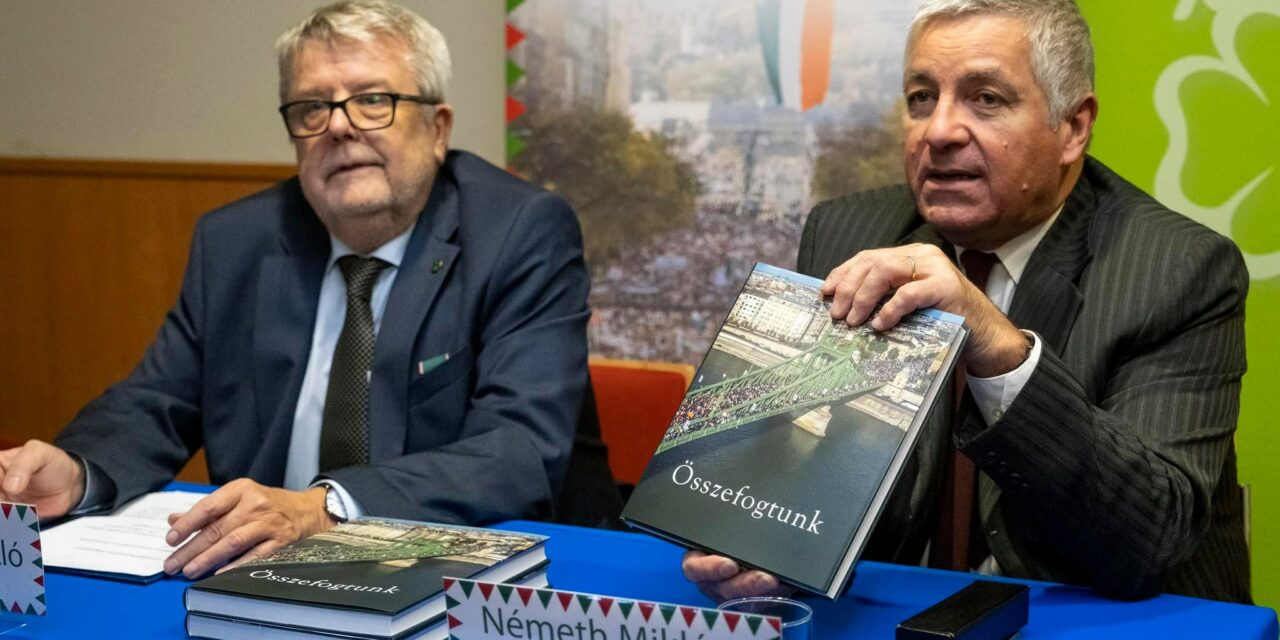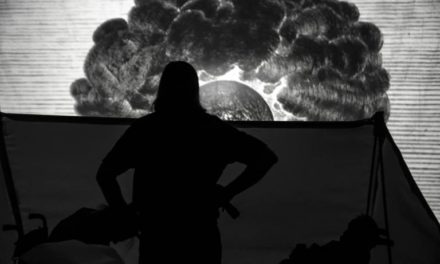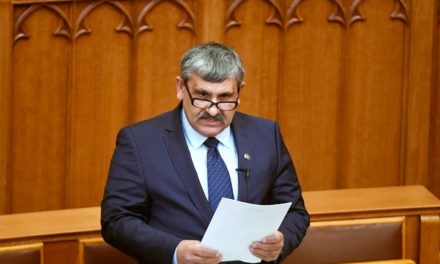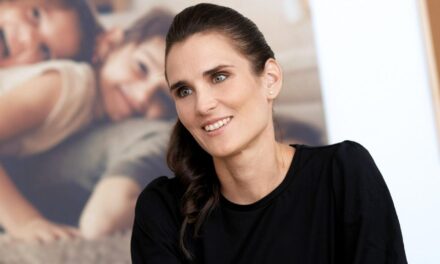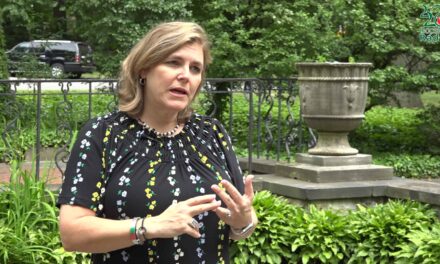I'm flipping through the wonderful album of the Civil Solidarity Foundation. It was edited by Attila Miklós Németh, and we got our hands on it after the uplifting ceremony of this year's Spiritual Defender award ceremony. Even its title is clear and eloquent: "Together". This book is like a kaleidoscope: we can see the experience of the civil awakening in Hungary through the eyes and hearts of individual outstanding characters. Despite the disregard they experienced in 2006 and the efforts of the left-liberal government, which suppressed the demand for truly responsible governance with unbridled violence, the Hungarian citizens continued their protest, and this struggle had a spectacular unfolding on April 5, 2009, Palm Sunday. At that time, Imre Makovecz directed it at the invitation of a handful of teams and with his organizing work, it was really a big rally in the field of Hősök. To the call "Let the people decide!" nearly a quarter of a million people gathered. The flood of people not only filled the Hősök square, but also overflowed onto the entrance roads - as far as the eye could see.
When I stood up on the platform, I was greeted by a dizzying sight. The huge crowd lost in infinity had been standing full of hope for hours; people stood side by side patiently waiting for the start and then listened to the speakers. Addressing the first, Imre Makovecz said here that he had had enough of the politics of lies. He said it repeatedly and it echoed as one man every time from the mouths of those standing on the square: it was enough! The civil union itself was born from the desire of millions, and from more than a hundred smaller voluntary civil groups. This founding will was shaped and organized by László Csizmadia as director with the organizational structure of the Civil Solidarity Forum (CÖF). The result is well known. Those who turn the pages of this beautiful book can join the Peace Marches, which are always able to start when our country is threatened.
What a denial, the volume stirred up the experiences of the beginning in me as well. Our "Flower Sunday" showed with volcanic force how great the need was in our port country for a forum with an emphatically civil organization, discussing common problems and coordinating action. We have all experienced with every breath that the relationship between morality and law has become a pressing issue in Hungary.
Imre Makovecz's goal was to call the entire national side into an alliance, with the cooperation of already existing organizations capable of thinking together. And so it happened. It was created by foundations, associations, associations, associations, clubs, religious and secularized civil organizations with the aim of helping the strengthening of Hungarian civil society, the representation of its interests, and the expression of its values. The "Civilians for Democracy Manifesto" can be considered its founding letter, which was accepted by the huge crowd with a public outcry. After that, the Sisyphean organizational work began: shaping our social and economic consultation tasks, participating in the creation of the Basic Law and carrying out the negotiations in order to actually express and then elevate the public will to government. And in 2011, the Civil Cooperation Council (abbreviated as: CET) was born into active cooperation with the involvement of Hungarian associations operating in the parts of the country beyond our borders. And when Izabella Bencze, who passed away recently, and I started weaving the international web, contacting possible sister organizations and their umbrella organizations with letters, we had the idea of holding an army review in Hungary with the theme "Civilian Values in the European Union". In addition to contacting many organizations, we drew the attention of CIVICUS, which organizes civic participation worldwide, ECAS, which serves European civic activity on its behalf, and MIDAS, the European Association of Minority and Regional Language Daily Newspapers, so that our international conference would receive an appropriate response. And in 2013, in connection with our Ethics Conference, we visited the affected countries from England to Slovenia, addressing those persons through whom direct contact can be established with similar local organizations. Our endeavor finally took off: first with the involvement of our Polish brothers, then with the involvement of other Western European professional and other organizations.
We also appeared in the hitherto barely navigated sovereign waters of popular diplomacy. In 2012 - of course after proper consultation - President Csizmadia and I personally checked in at the office of the representative of the IMF (International Monetary Fund) in Budapest to try to mediate between the government and the IMF - and the latter's representative here, Irina Ivaschenko, "almost jumped out of the window". , to avoid an uncomfortable encounter with us. We also caused a few uncomfortable moments for Sir Nicolas Bratza, the president of the European Court of Human Rights, when we asked him in connection with the "Fratanoló v. Hungary" case why he considers the provocative display of the autocratic symbol (red star) acceptable in Hungary. And it was an unforgettable experience in 2013 when I appeared as CET's spokesperson at the Day of Hungarian Culture in Zenta in Vojvodina; as well as engaging the people of Gödöllő in conversation together with Gergelly Huth in 2014 - among many similar forums. Last but not least, I consider it the greatest recognition that CÖF helped deliver the completed volume of my memoirs to interested readers.
But these are only my particularly memorable moments in connection with the CÖF, but they do not nearly exhaust the entire activity of the civil association. The entire horizon should be reviewed once.
In 2017, President László Csizmadia referred to this in a longer statement as follows:
"We advertised, and we are advertising, the possibility of supporting the approximately sixty-five thousand NGOs working for the public good, encouraging citizens to donate one percent of their income tax. We provide assistance for the establishment of small village producer communities, in parallel with the creation of family and small businesses. We are working on the practical implementation of short food chains for local consumption. We prioritize the task system of children's modern nutrition, publish technological and recipe descriptions of nutritionally biologically supplemented meals, and tour the country with gastronomic demonstrations. We provide professional assistance with voluntary work for tenders for public kitchens. We are creating a market opportunity for the introduction of the second shift of municipal kitchens, for the production of quick-frozen healthy foods, with strategic contracts that ensure the willing cooperation of Hungarian retail chains. With the second-shift, quick-frozen food production of municipal kitchens, we not only provide the institutions with income, but also create new jobs locally." And: "According to the mandate we received from the intellectual national defenders, we are organizing the European Union intellectual national defense movement with Polish and civil communities. We are holding a symposium establishing civics for national-minded citizens, hoping to establish the European Union Civil Cooperation Council in 2018." Furthermore: "...we run our civil academy every month, we help the operation of our CÖF clubs, we amplify the voices of our civilian partners and deliver messages to the EU institutional system, we do not forget our charitable tasks, we collect donations for our charitable actions, we emphasize the support of nurseries, kindergartens and schools."
But we didn't even brave the sea of CÖF's activities with this. Let me mention our educational lectures, book publishing, website, open letters, information materials, legal protection activities, tender information, and charity campaigns. From our professional activities, I also saw the work of the public law cabinet and the agricultural committee.
Also, a few key words and concepts related to the operation and organization of CÖF-CÖKA are enough to see that one day it will be necessary to provide as complete an overview as possible. Because such concepts as the Civil Code of Ethics, or the Civil Academy, the CÖF clubs - and the peak itself, the concept and implementation of the Peace Process, are the achievements of Hungarian civil organization.
In the meantime, civics, the systematized knowledge of civic activity, has unraveled. László Csizmadia comments on this:
"Let's ask whether the civilians, the owners of the people's sovereignty, have such a guiding science that can balance the advantage of parties based on political science. The answer is no. Therefore, the citizens of nations need a discipline that provides a reliable basis in the event of elections to place the possession of power in good hands. This science can be civics."
This completes the picture. Through the awareness and recognition of "spiritual national defense", the direct representation of the majority civil society appeared in public life. This one wore a festive dress in the Széffogtunk album.
András Kelemen
In our opening picture: László Csizmadia is the president of CÖF and Attila Miklós Németh is the editor of the book.

